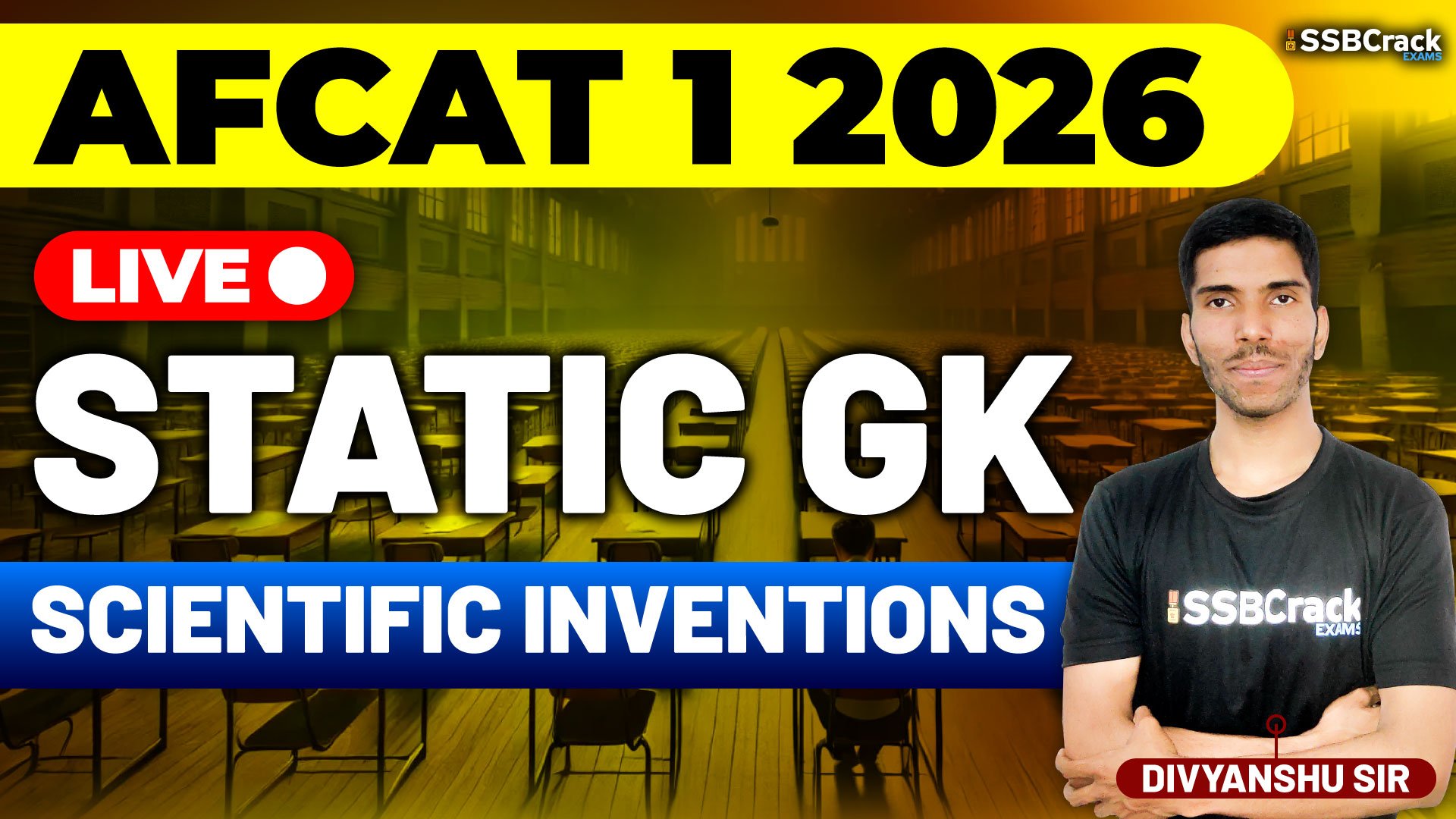Scientific inventions have always been the backbone of human progress. From the discovery of fire to the invention of artificial intelligence, each scientific milestone has transformed the way we live, communicate, and explore the universe.
AFCAT 1 2026 Exam – Scientific Inventions (Old & New)
🔹 Ancient and Classical Inventions
The earliest scientific discoveries laid the foundation of modern science and technology. Civilizations like the Egyptians, Greeks, Indians, and Chinese made remarkable contributions:
- The Wheel (around 3500 BCE): Invented in Mesopotamia, it revolutionized transport and machinery.
- Zero (India): Discovered by Indian mathematician Aryabhata, the concept of zero became the cornerstone of modern mathematics and computer science.
- Compass (China): Enabled navigation and exploration across oceans.
- Printing Press (Johannes Gutenberg, 1440): Sparked the knowledge revolution and made books accessible to the masses.
- Telescope (Galileo Galilei, 1609): Opened the doors to astronomy and space science.
- Steam Engine (James Watt, 1769): Paved the way for the Industrial Revolution.
🔹 19th Century Scientific Breakthroughs
The 19th century marked a period of rapid industrialization and innovation. Some major inventions included:
- Electric Bulb (Thomas Edison, 1879): Illuminated the world and changed human lifestyle.
- Telephone (Alexander Graham Bell, 1876): Revolutionized communication.
- Radio (Guglielmo Marconi, 1895): Brought the world together through wireless communication.
- Photography and Cinema: Gave rise to visual storytelling and entertainment industries.
- Periodic Table (Dmitri Mendeleev, 1869): Organized chemical elements, forming the basis of modern chemistry.
🔹 20th Century Inventions – The Age of Science & Technology
The 20th century was the era of scientific revolution—shaping modern civilization through unprecedented innovation:
- Airplane (Wright Brothers, 1903): Changed global travel and warfare.
- Penicillin (Alexander Fleming, 1928): The first antibiotic, saving millions of lives.
- Computer (Charles Babbage’s concept, developed mid-1900s): The core of the digital revolution.
- Television (John Logie Baird, 1927): Brought visual communication to households.
- Internet (1960s–1980s): Connected the world digitally and redefined information exchange.
- Nuclear Energy: Provided a new source of power and defense capability.
- Space Exploration: The launch of Sputnik (1957) and Apollo 11 (1969) took humanity beyond Earth.
🔹 21st Century – The Era of New-Age Innovations
Modern scientific inventions have redefined how humans interact with technology, nature, and even biology itself. Some groundbreaking innovations include:
- Artificial Intelligence (AI): Powers modern tools, robotics, and data-driven decision-making.
- Smartphones and Internet of Things (IoT): Created a connected world where devices “talk” to each other.
- Electric Vehicles (EVs): Promoting sustainable transportation.
- CRISPR Gene Editing: Allows modification of genetic material for disease prevention.
- Quantum Computing: A revolution in computational speed and capability.
- Renewable Energy Technologies: Solar, wind, and hydrogen power are reshaping the energy sector.
- Space Tourism & Private Space Exploration: Led by companies like SpaceX and Blue Origin.
- 3D Printing: Revolutionizing manufacturing and healthcare with precision design.
🔹 India’s Contribution to Science and Innovation
India has a rich history of scientific invention and continues to make remarkable contributions in the modern era:
- Ancient Era: Inventions like Ayurveda, Yoga, Zero, and Iron Metallurgy.
- Modern Era:
- Chandrayaan-3 and Aditya-L1 Missions: Showcasing India’s excellence in space technology.
- Aarogya Setu App & UPI: Innovations in digital technology and healthcare.
- Tejas Aircraft, BrahMos Missile, and DRDO Projects: Representing advancements in indigenous defence technology.
- ISRO’s Gaganyaan Mission (Upcoming): Aiming to send Indian astronauts to space.
🔹 Importance for AFCAT Aspirants
Understanding scientific inventions helps candidates:
- Build a strong foundation in General Science and Current Affairs.
- Relate scientific progress to defence technology, space exploration, and innovation—key areas in AFCAT exams.
- Appreciate India’s scientific achievements and their role in self-reliance (Atmanirbhar Bharat) and national development.
🔹 Conclusion
From the invention of the wheel to the development of artificial intelligence, science has continuously driven human civilization forward. For AFCAT aspirants, learning about these inventions not only enhances knowledge but also inspires innovation, curiosity, and a spirit of exploration—qualities essential for the future officers of the Indian Air Force.







